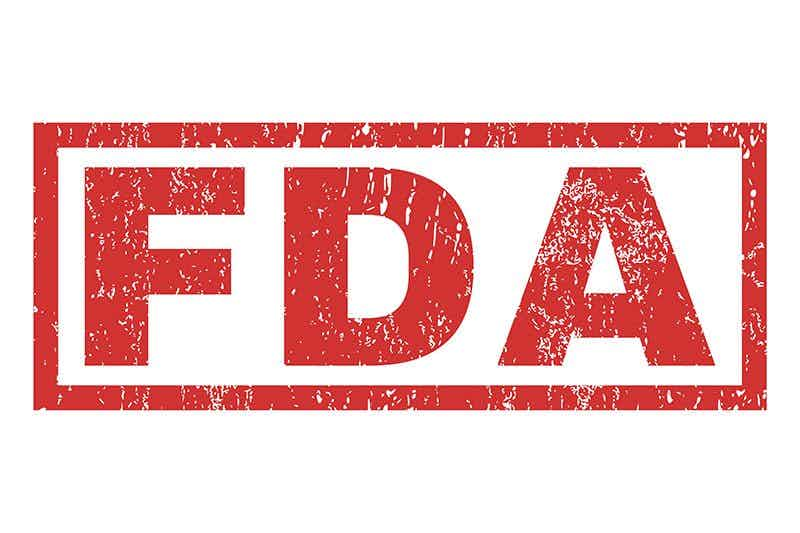President Trump will nominate Scott Gottlieb to be the next commissioner of the Food and Drug Administration (FDA). The appointment requires approval by the Senate, after confirmation hearings are held.
The FDA commissioner oversees more than a dozen sub-agencies, including the Center for Tobacco Products (CTP), which last year imposed regulations that deemed e-cigarettes and some other nicotine-containing products, like lozenges and pouches, to be under their control.
It would be within the control of the new commissioner to fire CTP director Mitch Zeller, and to replace his staff. He could also decide to take a new direction in regulating vaping, or to not regulate it at all.
Is Gottlieb good for vaping?

Will Dr. Gottlieb change the FDA’s course on regulating e-cigarettes? It’s impossible to know, but there may be some encouraging signs.
First, he understands some of the issues — or at least he did in 2013. That was when he wrote an article for Forbes that correctly identified some of the issues at the CTP. He described the FDA tobacco center — and the Family Smoking Prevention and Tobacco Control Act (TCA) that created it — as being precariously balanced between fulfilling its mandate to encourage the production of reduced-harm products and satisfying the anti-tobacco zealots whose influence has grown since the TCA passed.
The success of the CTP “was dependent on FDA being able to establish – and maintain – a regulatory path that let tobacco get approval for new products that posed a ‘reduced harm’ over traditional smoked cigarettes,” he wrote. “It always seemed a naïve aspiration — that FDA would ever sanction such products – and even more uncertain that the anti-tobacco crowd would let this paradigm advance.”
"It’s encouraging to see a health policy expert who isn’t a wild-eyed anti-nicotine true believer."
He repeatedly refers to the “anti-tobacco crowd” and even calls them “activists,” which is exactly correct. These are the same people deadset against allowing vaping to gain a toehold in the market. “Activists have managed to infiltrate the middle ranks of the agency’s center,” wrote Gottlieb, referring to the CTP. It’s encouraging to see a health policy expert who isn’t a wild-eyed anti-nicotine true believer.
Dr. Gottlieb works for the American Enterprise Institute (AEI), a conservative think tank that has been generally pro-vaping (and other tobacco harm reduction products). AEI is also the home of Dr. Sally Satel, the Yale psychiatrist who has been one of vaping’s most visible defenders recently.
Or will it be more of the same?

On the other hand, Gottlieb has close ties to the pharmaceutical industry, which has been an opponent of consumer nicotine products in general, and vaping specifically. Gottlieb is a partner in a venture capital firm, where he is involved with health-related investments.
He has also served as a consultant or board member for several pharma companies, including GlaxoSmithKline, maker of Nicorette gum and NicoDerm nicotine patches. He received more than $400,000 from pharma companies from 2013 to 2015, according to the New York Times.
According to Reuters, a recent survey of 53 pharmaceutical executives found that 72 percent preferred Gottlieb over other candidates who had been in the running. Pharma bosses seem relieved that Gottlieb was chosen.
Gottlieb has served at the FDA before, doing several jobs at the agency during the George W. Bush administration, including deputy commissioner for medical and scientific affairs. Gottlieb seems to be respected even by those who disagree with his conservative stances on some health care issues. Former FDA lawyer John Taylor told the Times that Gottlieb was open minded and showed great attention to detail. “Scott and I have different ideological backgrounds, but I recognize that he does have a record of doing things that are for the benefit of the consumers.”

Jim McDonald
Vaping for: 13 years
Favorite products:
Favorite flavors: RY4-style tobaccos, fruits
Expertise in: Political and legal challenges, tobacco control haters, moral panics
Jim McDonald
Smokers created vaping for themselves without help from the tobacco industry or anti-tobacco crusaders, and I believe vapers and the vaping industry have the right to continue innovating to give everyone who wants to use nicotine access to safe and attractive non-combustible options. My goal is to provide clear, honest information about vaping and the challenges nicotine consumers face from lawmakers, regulators, and brokers of disinformation. You can find me on Twitter @whycherrywhy


